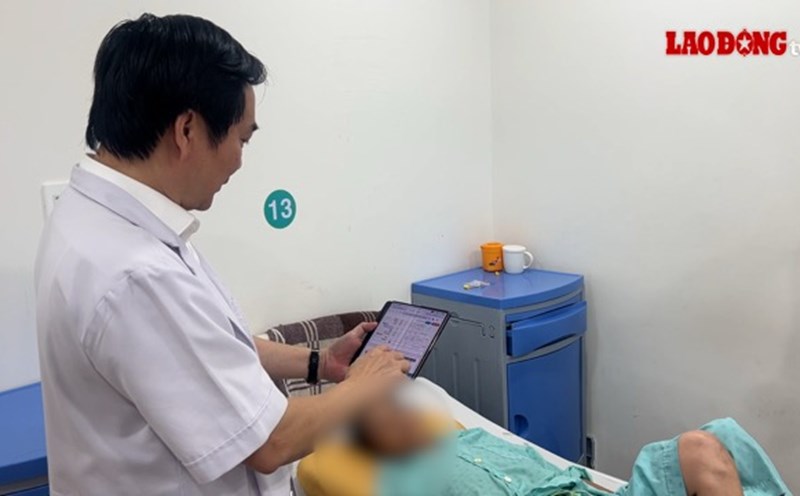Only 50% of hospitals have deployed electronic medical records
According to the leader of the Ministry of Health, digital transformation is considered a key task, but in reality, about 50% of hospitals nationwide are slow to announce the implementation of electronic medical records. While the target of 100% of hospitals nationwide must deploy electronic medical records, while connecting and connecting data between district and provincial hospitals with hospitals under the Ministry of Health, to be completed in September 2025.
However, by the end of September 2025, the results were still "stable", only about 50% of hospitals announced the implementation of electronic medical records. The progress of medical facilities implementing electronic medical records is still low compared to requirements.
Up to this point, many localities have not yet completed key steps such as upgrading information technology infrastructure, standardizing management software or ensuring data safety and security. The lack of synchronization in technical foundation and IT human resources is still thin and it is difficult to arrange capital, causing the progress of electronic medical records to be slower than planned.
Although the regulation on selling prescription drugs has existed for a long time, the situation of "buying medicine like buying vegetables" is still common everywhere. People only need to describe a few symptoms, the pharmacy is ready to immediately provide antibiotics, painkillers or sleeping pills without a doctor's prescription.
In addition, the implementation of nationwide electronic prescription interconnection is also taking place much slower than planned. Notably, many large end-line hospitals have not yet fully implemented the connection, mainly applying it to health insurance prescriptions, while service-based prescriptions are still prescribed and stored internally.
Associate Professor, Dr. Tran Quy Tuong - Chairman of the Vietnam Medical Informatics Association said that there are 3 main reasons for the delay. Firstly, many hospital directors and leaders have not been really proactive, still waiting for instructions from higher management agencies. Second, there are not enough strong sanctions for hospitals that are slow to deploy electronic medical records. Third, the financial mechanism for applying information technology in healthcare in general and electronic medical records in particular still lack guidance, the price of medical services is not included in technology costs.
Digital transformation in the health sector is considered an inevitable step to improve management efficiency, information transparency and ensure safety for patients. However, after many years of implementation, the electronic prescription system - one of the important pillars of medical digital transformation - has not yet achieved the expected results.

Not as expected
The health sector is actively applying information technology and comprehensive digital transformation. In 2024, the Ministry of Health ranked 11th out of 19 ministries and branches in digital transformation, up 2 places compared to 2023. The Ministry focuses on directing the implementation of Project 06, in coordination with the Ministry of Public Security to integrate Electronic Health Books on VNeID; to date, 34/34 provinces and cities have implemented Electronic Health Books, 100% of health insurance medical facilities have connected to national data.
Many hospitals have applied artificial intelligence (AI), remote medical examination and treatment (TeleMedicine), cashless payments, reduced administrative procedures and improved patient experience. Outstanding models include: "Electronic health records", "Paperless Hospital - Smart Hospital", AI in diagnosis and treatment, remote medical consultation, and digital transformation in administrative management, online meetings, digital signatures.
The Ministry of Health also completed the e-Government architecture framework for version 3.0, deploying 4 shared platforms, integrating data on 6/6 industry service systems, implementing Resolution 57-NQ/TW on breakthroughs in science, technology development and national digital transformation.
The Ministry of Health emphasizes digital transformation as a key task to improve management efficiency, health service quality and people's satisfaction. However, the goals set by the Ministry of Health have not been achieved as expected.











